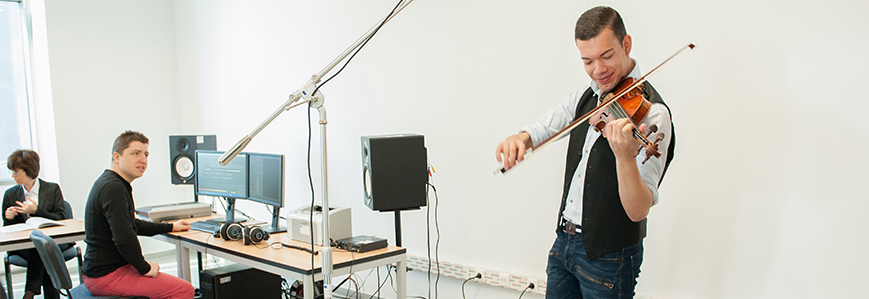Research fields

Within the Research Center, artistic activity (musical performance and/or creation) is recognized as equivalent to scientific research. It takes place on two levels: fundamental research, which addresses theoretical aspects such as harmony, musical forms, counterpoint, orchestration, music history, aesthetics, stylistics, ethnomusicology, music criticism, and cultural management; and applied research, focused on aspects of performance theory and musical creation. Interdisciplinary themes receive special attention.
The Center approaches topics in performance, musicology, music pedagogy, folklore, contemporary creation, and artistic interdisciplinarity, with emphasis on performance excellence and educational innovation.
The Music Science – Excellence in Musical Performance Research Center focuses on interdisciplinary studies in music, aiming to contribute to the development and promotion of musical culture.
Main research areas include:
- Performance and musical interpretation: exploration of interpretive techniques, stylistics, and expressivity in various musical genres.
- Musicology and ethnomusicology: theoretical and historical analysis of music, including the study of traditional and contemporary musical heritage.
- Music education and pedagogy: development of learning and teaching methodologies, adapted to different educational levels.
- Music therapy (melotherapy): investigation of music’s role in promoting health and well-being.
- Music technologies and audio production: research on the application of modern technologies in music production and recording.
These areas are addressed through fundamental and applied research projects, national and international collaborations, as well as the organization of scientific and artistic events.



